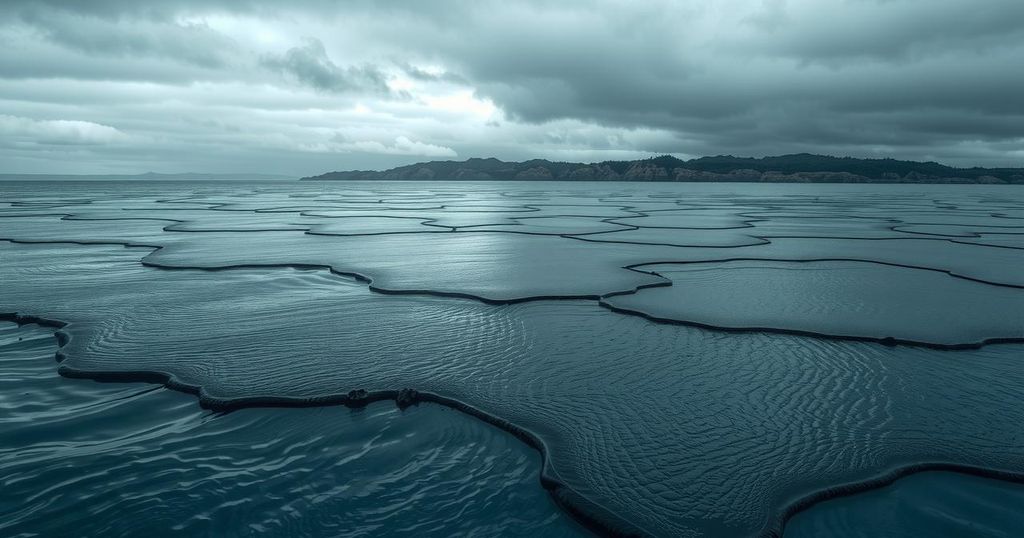Ecuador Faces Environmental Crisis as Oil Slick Compromises Water Supply

Ecuador is addressing a severe oil slick resulting from a pipeline rupture caused by a landslide, impacting half a million residents and leading to an environmental emergency declaration. The crude oil spill has contaminated multiple rivers, significantly affecting drinking water availability in Esmeraldas, where recovery efforts are in place. Prior to the incident, Ecuador produced 475,000 barrels of oil daily, highlighting the importance of oil as a key export for the country.
Ecuador is currently grappling with an oil slick that has been spreading since a spill occurred last Thursday, which has compromised drinking water supplies and prompted the declaration of an environmental emergency. The incident was reportedly caused by a landslide that ruptured a major pipeline, resulting in the release of tens of thousands of barrels of oil. The slick has now extended from the Esmeraldas River to at least four additional waterways.
Roughly 500,000 individuals have been impacted, particularly in the province of Esmeraldas, which heavily relies on its rivers for potable water. Mayor Vicko Villacis stated that many residents are now without access to drinking water due to the contamination. To address this crisis, the government has officially declared an environmental emergency, which includes a wildlife refuge housing over 250 animal species.
In response to the spill, state-owned Petroecuador is deploying tanker trucks to recover as much of the crude oil as possible from affected areas. While the exact volume of oil discharged remains unquantified, Villacis approximated it to be around 200,000 barrels. To alleviate the water shortage, three ships are expected to deliver fresh drinking water to the region starting Tuesday.
Ecuador produced approximately 475,000 barrels of oil per day in 2024, making petroleum one of its key exports. The damaged pipeline is part of the Trans-Ecuadorian Pipeline System (SOTE), which has the capacity to transport 360,000 barrels daily over 500 kilometers (310 miles) from the Amazon to the Pacific coast. Reports from Rocafuerte, a fishing village within Esmeraldas, indicate a stark impact on local fisheries, with many boats and nets smeared in oil. Local resident Luis Cabezas expressed concern, stating, “If it continues like this, we won’t be able to fish anymore.”
The oil spill in Ecuador has led to significant environmental and public health concerns, leaving thousands without access to clean drinking water. The government has moved to address the crisis through emergency declarations and recovery efforts. With the situation affecting a large segment of the population and local ecosystems, ongoing efforts are crucial to mitigate the impact of the disaster and restore the region’s water supply and ecological balance.
Original Source: www.france24.com





